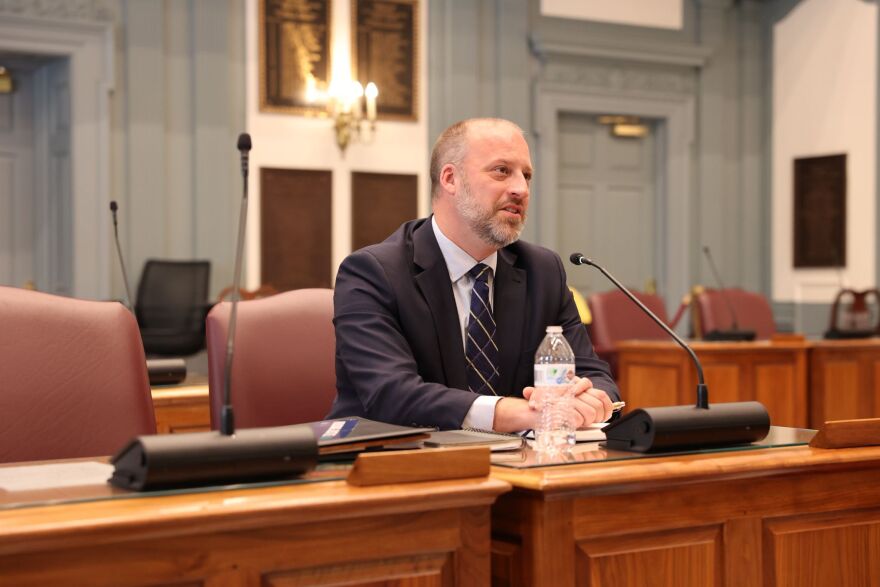Delaware State Housing Authority’s new director Matthew Heckles is set on delivering more affordable housing in the First State. But he sees federal funding cuts complicating that effort.
Heckles says he’s excited to work in Gov. Meyer’s administration with a governor that believes housing is a human right. Heckles is tasked with leading the state’s efforts to address housing concerns, and affordable housing is at the center of that effort.
Federal funding cuts to housing efforts – which have already begun – are sure to hinder that work, Heckles said.
“In a place, especially in housing, with an administration that wants to do great things, it's incredibly frustrating to have all of this attention on housing – all of this alignment, quite frankly, across the communities, to have great alignment on what we need to do, and a dedication to accomplishing the goals – but to not have the resources there to support us. That is an incredibly frustrating sort of set of circumstances to be in.”
One specific example of the impact of federal cuts came this month when the U.S. Department of Housing and Urban Development pulled a $425 thousand grant from a Delaware-based fair housing advocate. That was at the direction of DOGE.
Beyond seeking more funding for housing, Heckles said he wants to see land use and density regulations change at the local level to allow for more affordable housing, especially in Sussex County.
“If we built 50 thousand new units of 25 hundred square foot homes on half acre lots, there wouldn't be a whole lot of land left in Delaware, and it wouldn't fix our affordability problem,” Heckles said.
Instead, DSHA has held meetings with Sussex County Council recommending the development of multi-family attached homes, like apartments, duplexes and condos.
Heckles believes it’s important everyone be on the same page to make progress, something that might be difficult to attain under the Trump administration.
“We're going to work to make sure that we have more resources,” Heckles said. “That's difficult these days. The federal government is going in a different direction than I would like it to, especially when it comes to housing, community development, programming and its capacity. I think there's an opportunity for the state to step in a lot of instances and fill gaps, but we may have to prioritize how we do that.”
DSHA has partnered with nonprofits and private companies in the past to create affordable housing options for Delawareans.
But Heckles is fearful of what the federal budget for next fiscal year could look like, arguing it is sure to include more cuts to housing programs.
“I think the best case scenario is that we see some of these programs devolve to the state level. That just means that, rather than having sort of administrators at the federal level moving that money out into communities, that they might devolve that to the states to do that, I think that Delaware has to be prepared to take on that role.”
The worst alternative, Heckles said, is that those funds are eliminated completely.
“Then it would be up to the state to try to fill the gaps financially. And in an environment where you know that's happening, I would expect that we would see difficult budget times.”
Heckles wants DSHA to continue tackling housing issues in the First State from multiple angles. Pallet villages, tiny homes, hotels and supportive services are all on the table, Heckles said.
For Heckles and DSHA, it’s just a matter of funding.





